Textual Transmission in the Islamic Manuscript Age: On the Variance, Reception, and Usage of Arabic and Persian Works from the Middle East to the Indian Subcontinent

The transmission processes of handwritten texts that confront today’s researchers into the Islamic world before the widespread introduction of printing in the 19th century take different forms and can include both minor “corrections” and additions as well as complete revisions of a text with changes to its central statements. The aim of the international cooperation between scholars in Germany and Japan is to make existing approaches and findings relating to the creation, transmission, and reception of texts from the Middle Eastern subjects of Arabic Studies, Islamic Studies, and Iranian Studies, which are strongly represented in both countries, internationally fruitful and visible. The objective is to shed light on how historiographical, religious, scientific, legal, or literary works in Arabic and Persian were copied, handed down, received, deliberately altered,
and made newly usable in the region ranging from the Near East to the Indian subcontinent throughout the extended early modern period.
The case studies to be discussed include texts from various regions of the Near and Middle East, the majority of which were written or handed down between c. 1300 and 1800. The focus is on authors, copyists, and later recipients who composed, copied, interpreted, and used texts in new contexts, modifying them according to changing socio-cultural contexts, (religious) political necessities, or individual preferences. The following questions are addressed:
(1) What type of narrative or motif in literary and historiographical works is selectively transmitted from one context to another?
(2) What changes in content can be demonstrated here, and to what factors can they be attributed?
(3) Which actors were involved and how?
(4) How did the transmission of knowledge take shape with regard to phenomena such as collected manuscripts (majmūʿa) with partial sections from works or abridged versions (mukhtaṣar)?
(5) What does this say about the contemporaneous understanding of texts and knowledge?
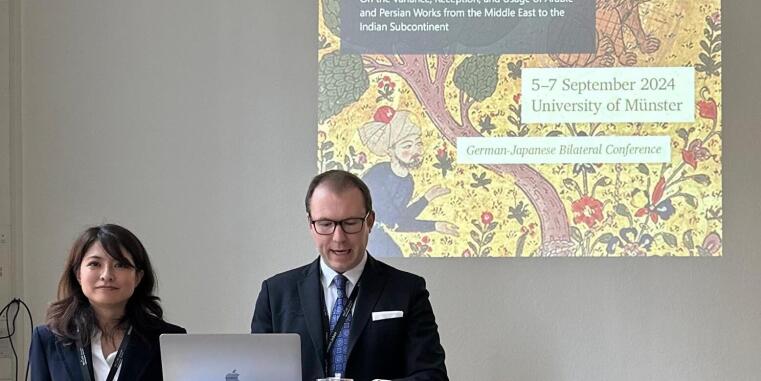
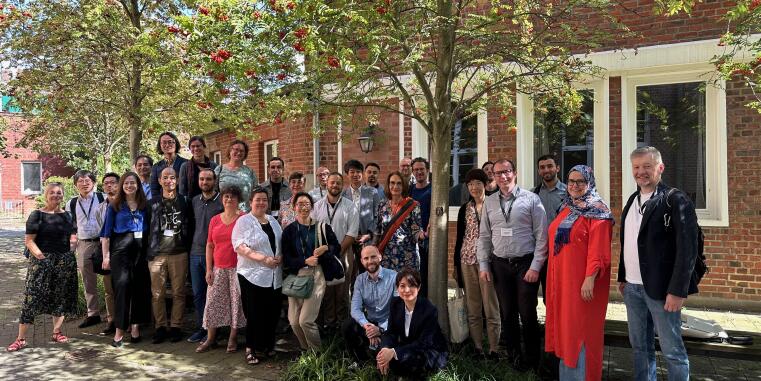
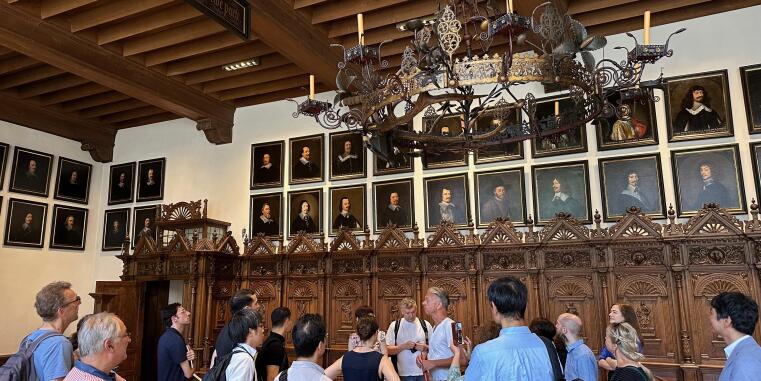
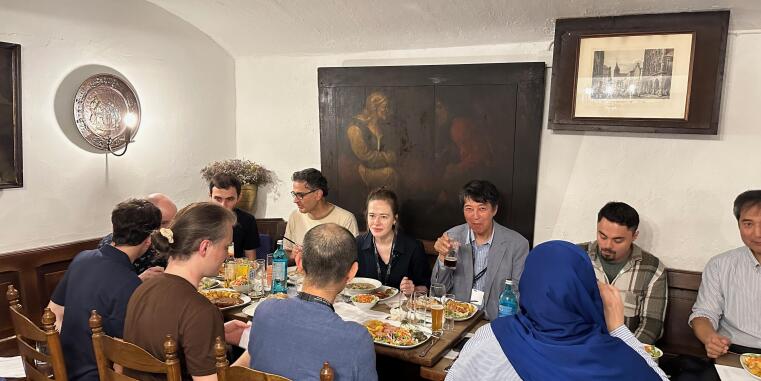
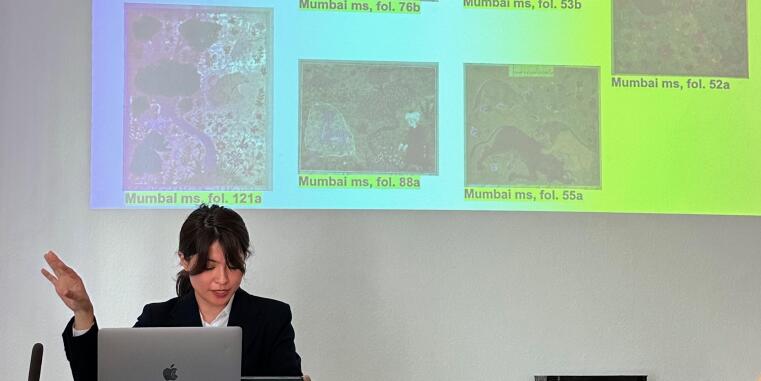


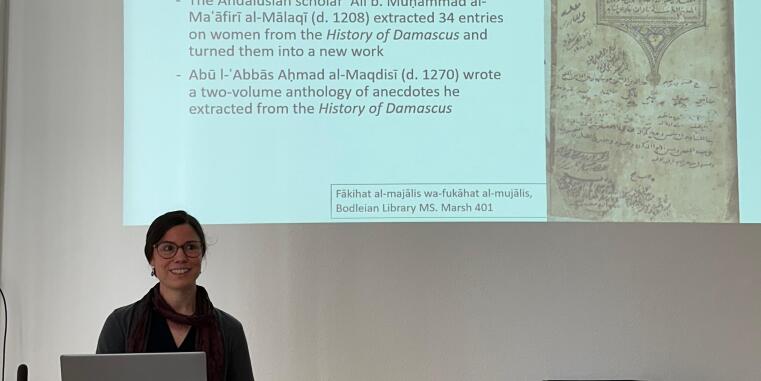
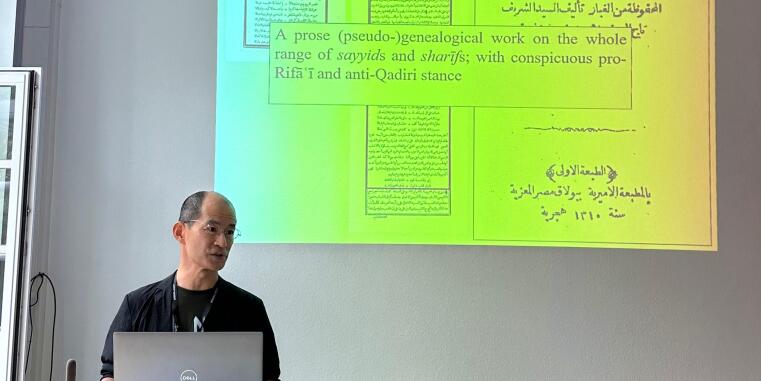
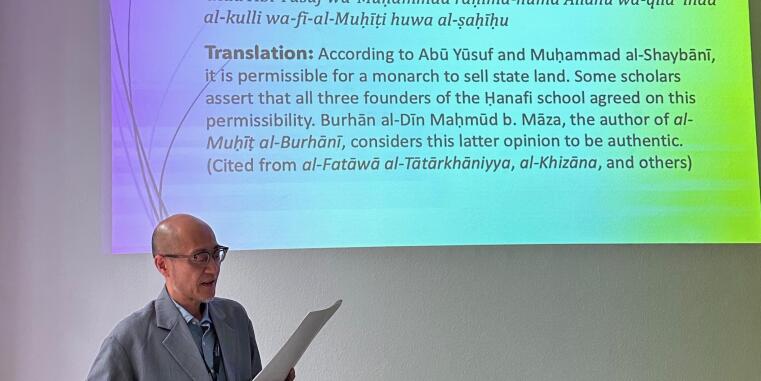
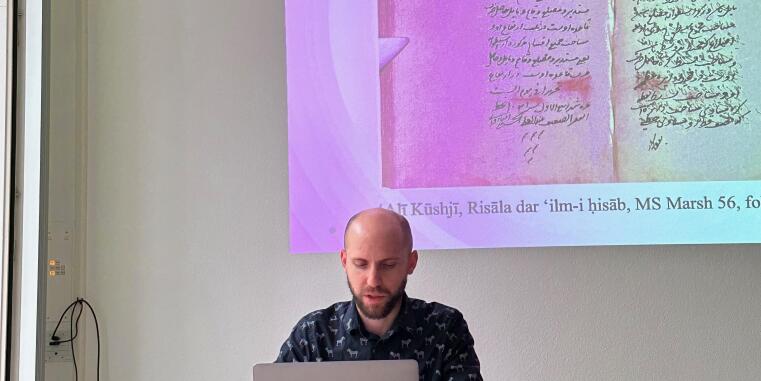
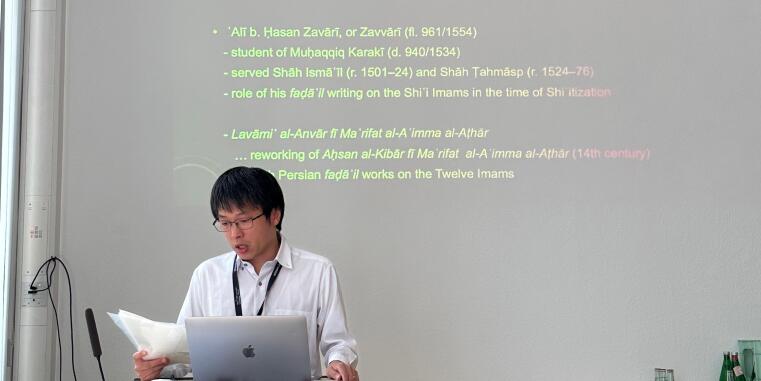
Programme
Thursday, 5 September
15.00 Welcoming Address & Introduction
- Eric Achermann (Dean of the Faculty of Philology, University of Münster)
- Philip Bockholt (Münster) & Yui Kanda (Tokyo)
15.30 / Chair: Ines Weinrich, Panel 1: Knowledge Transfer from the Islamic West to the East
- Philip Bockholt (Münster): Ibn Khallikān’s Wafayāt al-Aʿyān in Persian: On Translation Processes in Late 15th-Century Gujarat
- Kaori Otsuya (Tokyo): Histories of Medina Transcending Regions, Time Periods, and Languages: A Preliminary Study on Jadhb al-Qulūb ilā Diyār al-Maḥbūb by ʿAbd al-Ḥaqq al-Dihlavī (d. 1052/1642)
16.45 / Chair: Jens Fischer, Panel 2: Translations from Sanskrit and Arabic into Persian
- Eva Orthmann (Göttingen): The Persian Śalihotra: The Transformation and Adaptation of a Sanskrit Text in Persian Treatises on Horses
- Nobuaki Kondo (Tokyo): Comparing Manuscripts of a Popular Romance: The Persian Classic Version of the Ḥamzanāma
18.00 Reception
Friday, 6 September
10.00 / Chair: Paula Manstetten, Panel 3: Transmission of Religious Texts
- Isabel Toral (Berlin): The Muslim and Christian Arabic Versions of the Buddha Legend and its Trans-Religious Reception History
- Ines Weinrich (Münster): Stability and Change in the Transmission of Arabic Mawlid Texts: The Case of Mawlid al-ʿArūs
- Ryo Mizukami (Tokyo): From Aḥsan al-Kibār to Lavāmiʿ al-Anvār: Reworking a Faḍāʾil Work on the Twelve Imams for Shāh Ṭahmāsp
11.30 Coffee break
12.00 / Chair: Sacha Alsancakli, Panel 4: Changes in Historiography
- Takao Ito (Kobe): Was there Another Version of Ibn Kathīr’s History?
- Osamu Otsuka (Tokyo): The Dedication of a Universal History to Various Patrons: A Case Study of the Ilkhanid Historian Shabānkāraʾī
- Akihiko Yamaguchi (Tokyo): Evolving Iranian Identity in the Periphery: A Study of Ardalān Historiography
13.30 Lunch
14.30 / Chair: Alfred El Khoury, Panel 5: Evolution of Literary Texts
- Kumiko Yamamoto (Tokyo): A Few Questions on the “Older Preface” to the Shāhnāma of Firdawsī (In Memory of the Late Jaakko Hämeen-Anttila)
- Christine Kämpfer (Bamberg): Disseminating Adab and Mystical Thought Through Epic Imitation: Niẓāmī’s Makhzan al-Asrār and its Naẓīras
- Syrinx von Hees (Münster): Transmission of a Literary Contest in Different Textual Contexts: Questions of Reception
16.00 Coffee break
16.30 / Chair: Ahmet Aytep, Panel 6: Development of Scientific and Legal Works
- Sacha Alsancakli (Münster): Questions of Authorship and Readership in a Seventeenth-Century Indo-Persian Scientific Majmūʿa
- Ken’ichi Isogai (Kyoto): Making Tax-Exempted Land Out of Kharājī Land: Central Asian Ḥanafīs to Legitimize Rulers’ Policies in Persian Legal Works
19.00 Dinner
Saturday, 7 September
09.00 / Chair: Natalie Kraneiß, Panel 7: Afterlife of Genealogical and Hadith Texts
- Kazuo Morimoto (Tokyo): An Eventful Life of a Sayyid/ Sharīf Genealogy: From al-Aṣīlī to Ghāyat al-Ikhtiṣār
- Stefanie Brinkmann (Leipzig): The Circulation and Reception of al-Baghawī’s Hadith Collection Maṣābīḥ al-Sunna and its Commentary Tradition
10.00 Coffee break
10.30 / Chair: Stephan Tölke, Panel 8: Biographies Without End
- Paula Manstetten (Bonn): The Reception and Abridgement of Ibn ʿAsākir’s (d. 1176) History of Damascus in the Ayyubid and Mamluk Period
- Maxim Romanow (Hamburg): A Book of 30,000 Biographies: Computational Analysis of Sources of The History of Islam of al-Dhahabī (d. 748/1348)
11.30 / Chair: Tobias Sick, Panel 9: Adaptation of Texts at Courts in Anatolia
- Yui Kanda (Tokyo): “May the World Be Slave to King Kaykāʾūs”: Reception History of Qāniʿī Ṭūsī’s Kalīla and Dimna
- Nobutaka Nakamachi (Kobe): Reception of Mamluk Manuscripts in the Ottoman Period: The Scattered Selimiye Collection of ʿIqd al-Jumān
12.30 Lunch
14.00 City tour
19.00 Concluding dinner


